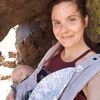“Change and transformation are immutable forces. They take the form of both creation and decay, for better or worse. This is the essence of growth. My work is an ever-evolving process of learning, seeking, and becoming; or, bluntly, of fucking up, destroying, and fixing. I am constantly shifting between dualities: fascination with technology and manufacturing versus deep respect for the natural world; whimsy, irony, and humor versus the tendency to dive into serious, uncomfortable topics; a love of science versus a quest for spiritual wholeness. My art, much like my life, finds a home in the dynamic spaces between and outside.”
Your website
Where were you born / where did you grow up?
I was born in Pocatello, Idaho. I spent most of my childhood there, but did have opportunities to travel. In my late teens/early twenties, I dropped out of college and ran away to New York for a couple years, which was a very formative experience.
I currently live in Richland, Washington. I've been here for about two years.
I’d love to hear more about your experience in New York; what was that like?
Oh, geez. The short version is that I went there as a nerdy kid from a small town with big plans to be an artist and a musician. The ‘starving artist’ life is hard. I got hungry and came home. (HAHA!)
I didn’t know anything about anything, and it opened my eyes to a whole world of experiences I just didn’t understand before. It basically turned me into a radical leftist, but that’s a story for another day….
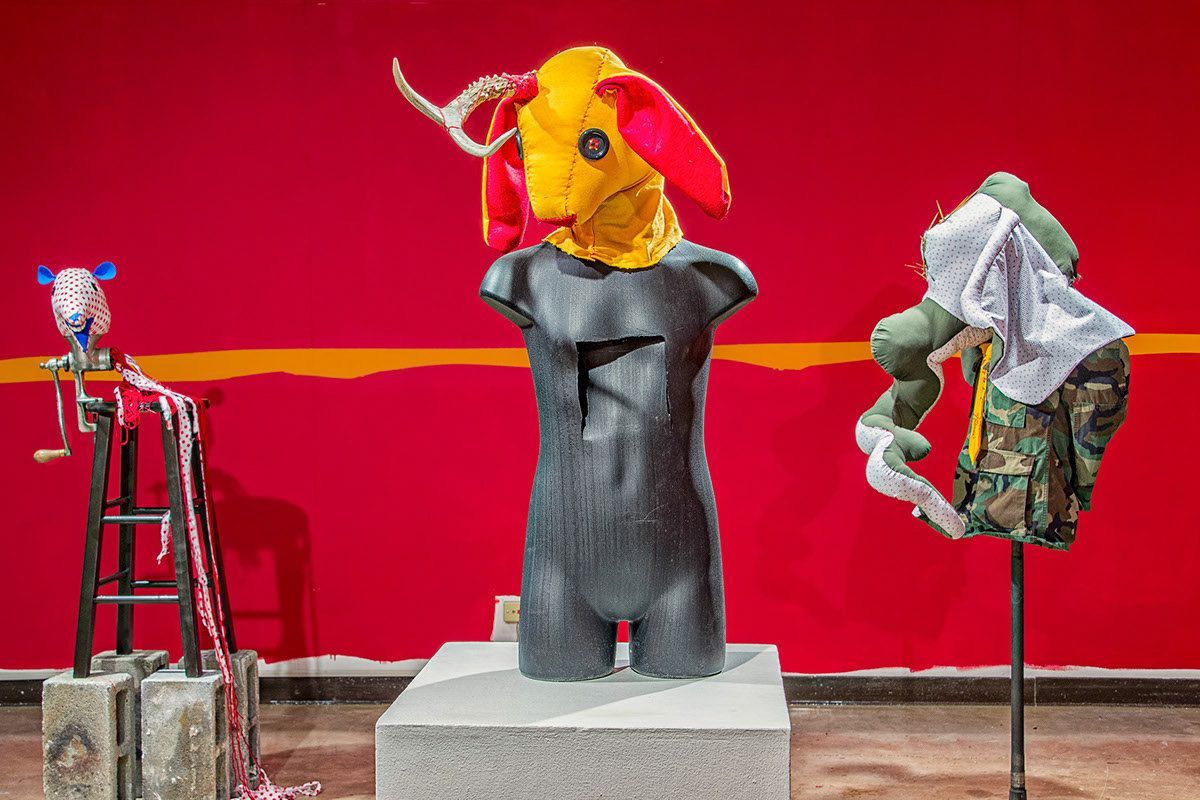
Acclimating to a new community during the isolation of a global pandemic has to have been incredibly challenging. Many view art as a solitary effort, but for me, it has always felt communal. How is your artmaking influenced by your community, and how has it been influenced by your move to Richland?
A lot of my work, until quite recently, has been very large scale and in the public sphere. Those projects are almost always team efforts, so the double whammy of being new to a community and under lockdown dramatically changed the way I plan and make work. I do love a new challenge, and it’s been an opportunity to experiment with new media and brush up on the basics. I definitely look forward to building connections and working collaboratively with artists here in the Tri-Cities.
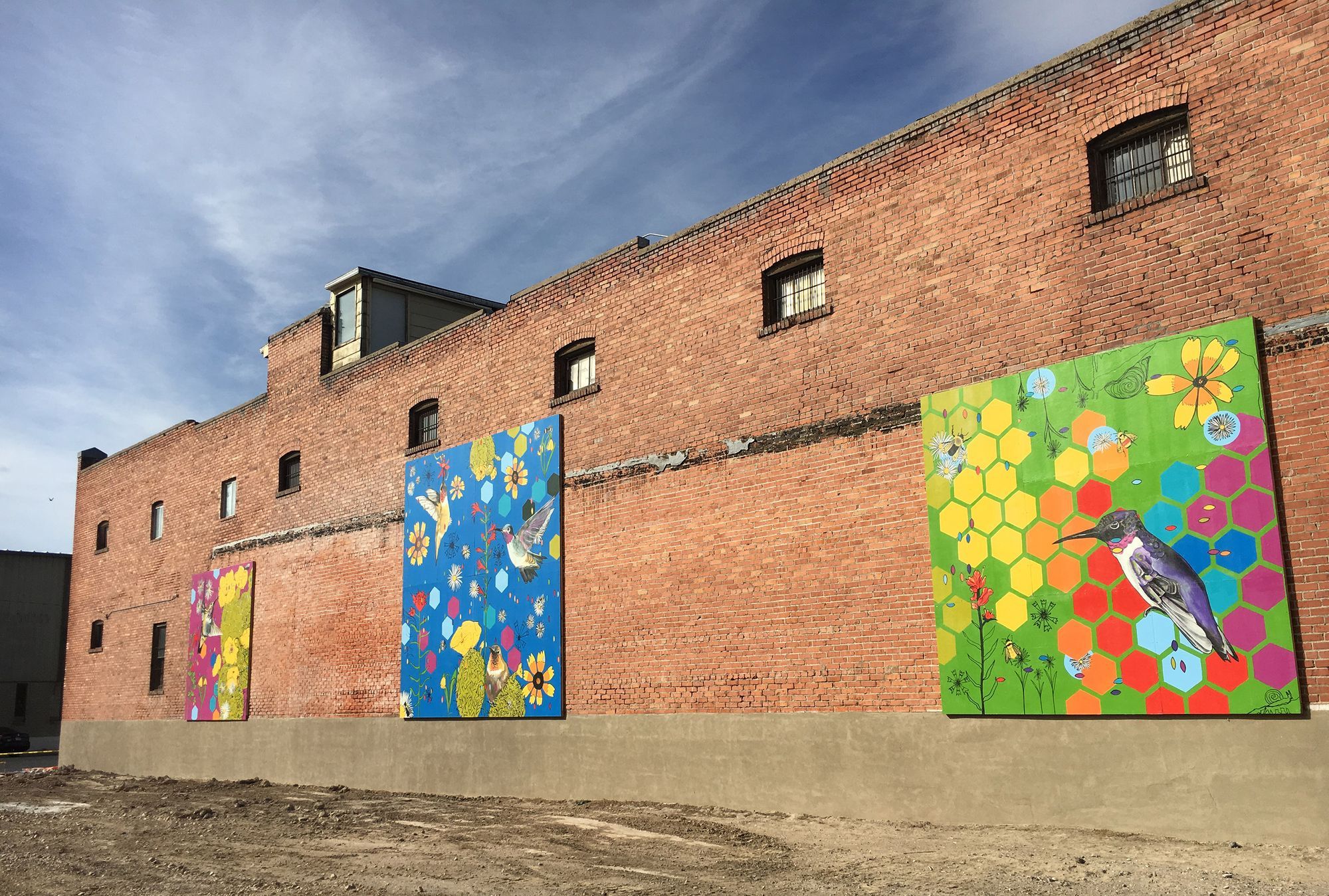
Have you always known art would be an integral part of your life? Or do you remember the moment when you realized it would be?
I’ve always been an artist, but I was not always confident that it would be a sustainable career path. This prompted me toward welding, a trade I believed would be both lucrative and a great skill to have for making sculpture. After my child was born, priorities had to shift, and the only thing I knew I really wanted to do was make art. Back to art school I went! I got all the way through an MFA and developed a passion for teaching and mentoring in the process.
How does your work with students influence your personal practice, or how does your personal practice influence how you teach?
Working with students puts me in contact with a wide range of folks with different world views and experiences. It gets me outside of my own head (no small feat, sometimes) and keeps me connected to what’s happening in culture outside my own bubble. I learn a lot from them. My art practice is one of exploring and experimentation, and I hope the importance of freedom to question, learn, make mistakes, and grow is something I am able to convey and share with my students.
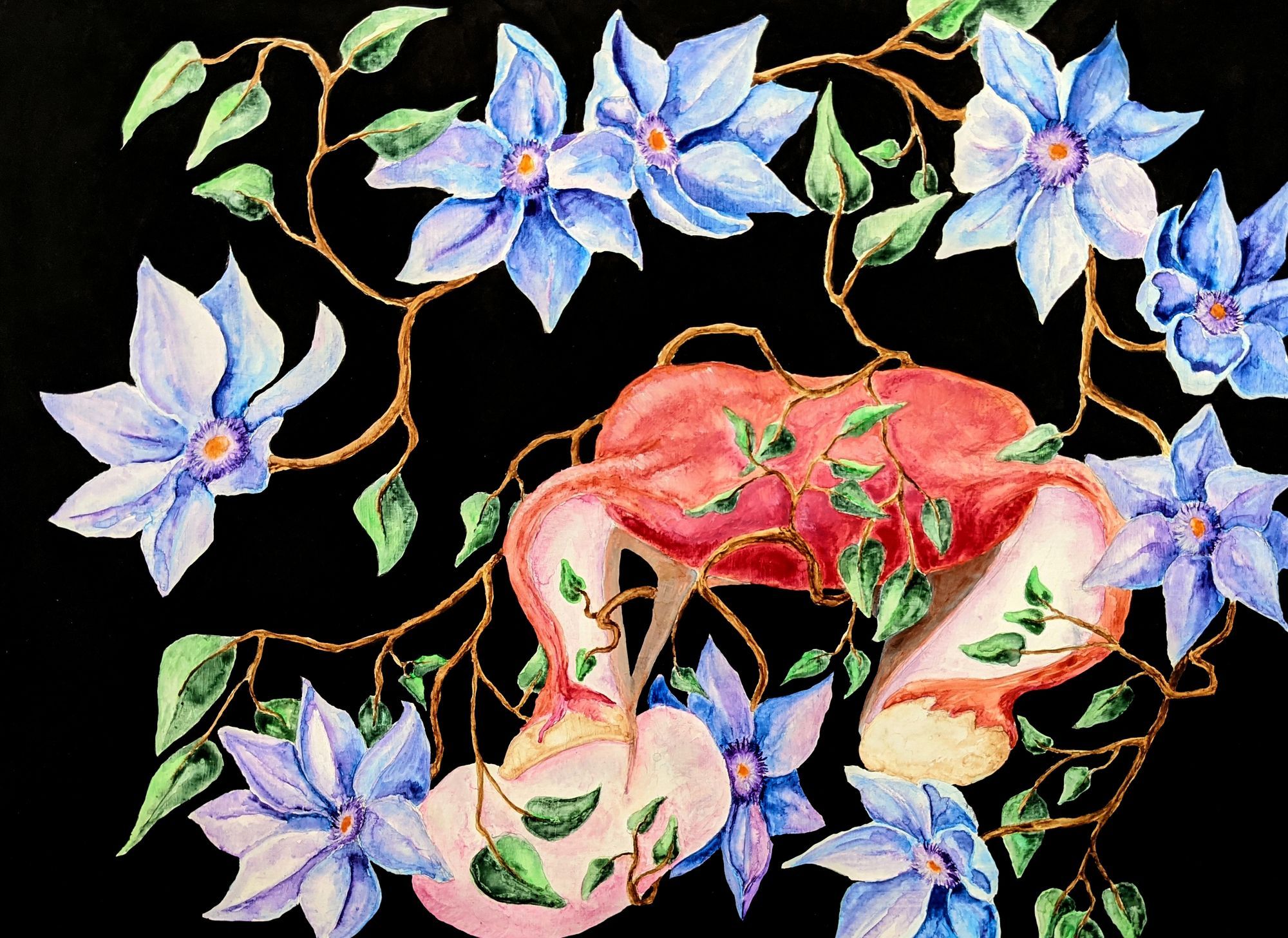
Can you remember the first time you exhibited your art? What was it like?
The first time I exhibited work outside of school art shows was in New York. A small gallery thought my nostalgic, homesick paintings and drawings of mountains and horses were ‘adorable’, and they sponsored a small booth for me at a local art festival. I even managed to sell a couple pieces. I felt like I had landed the Whitney Biennial and my path was SET. I was very naïve, and still didn’t quite know what I was doing, but it felt magical. Those bits of validation feel amazing, but you definitely need more than that to sustain a practice over the long haul.
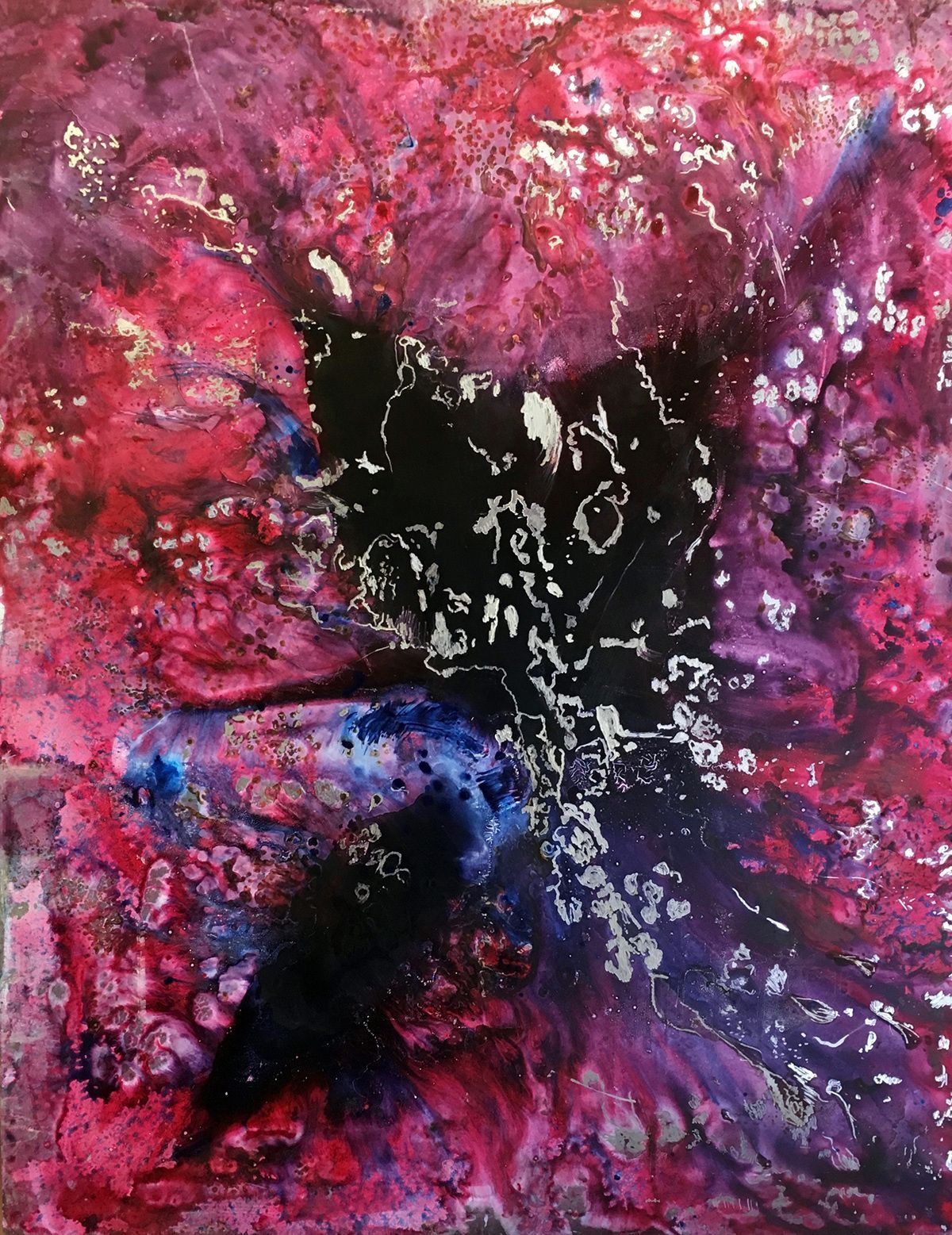
What medium are you currently working in?
At any point in time, one might expect to find works of a wide range of materials in progress in my studio: rom fiber, wood, paint, paper, and beyond. In my heart, I primarily consider myself a metalworker. My background includes extensive training and experience in casting, welding, and metal fabrication. Some of my favorite projects have been large-scale, collaborative efforts in public art. In 2D work, I frequently use steel as a support material for paintings, and I've been exploring metalpoint drawing techniques over the past year. I've also been dabbling in ceramics. My spouse and I built an adobe wood firing kiln in our backyard, and I'm researching areas to dig for natural clay in the region. I'm very much process oriented.
Can you share a little about your technique?
I use a variety of materials and varying levels of abstraction/figurativeness. I've never been particularly good at sticking to one method or mode.
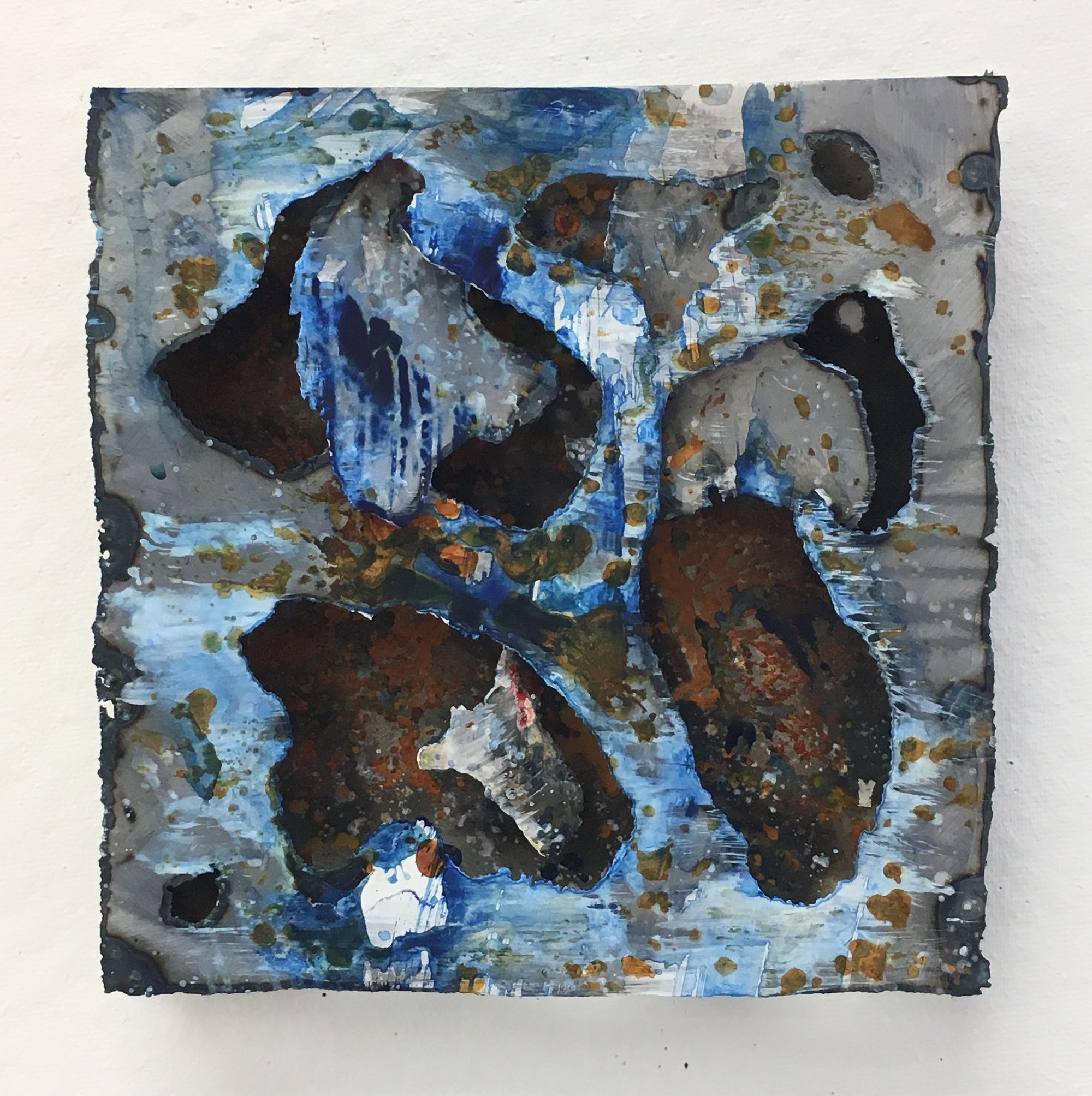
Can you tell us a little about your current project?
I am currently exploring the experiences of the human body and its many processes of growth, change, and decay.
Do you have a specific routine that keeps you in the practice of regular artmaking? How do you deal with moments when inspiration is not knocking at the door?
Routines have been strange these days, but I usually dedicate at least an hour or two every day toward my art practice, either in the processes of making, in research, or applying for exhibitions and projects. When I am really hitting a wall, it never hurts to set up a still life and just draw. Blasting some music while drawing is a good coping method for lots of things as well as a great meditative process in general.
Do you have any rituals, certain music, or a space that helps you get into the creative zone?
Adaptability has been the key to my practice. Everywhere is a studio, especially now. I pretty much have to embrace the chaos at any given moment, so my rituals change depending on what I’m working on. When I’m welding or doing hot processes with metal, I like to throw on noisy punk rock, metal (I know I’m corny), or industrial because it usually matches the racket of the medium. More detail-oriented processes usually require a very different energy, and I like focusing on the poetry of hip hop, classical, folk music, or even audio books, especially when drawing. My spouse is from Nigeria, so Afrobeat is a solid go-to, both in the studio and in our household in general. Basically, anything goes over here.
What inspires you?
Watching my child grow up, observing how water carves a landscape, the movement of celestial bodies, complexity and power in microscopic organisms/viruses, mythology, pop culture, my peers, my students, history, theory, the mysterious world at large.
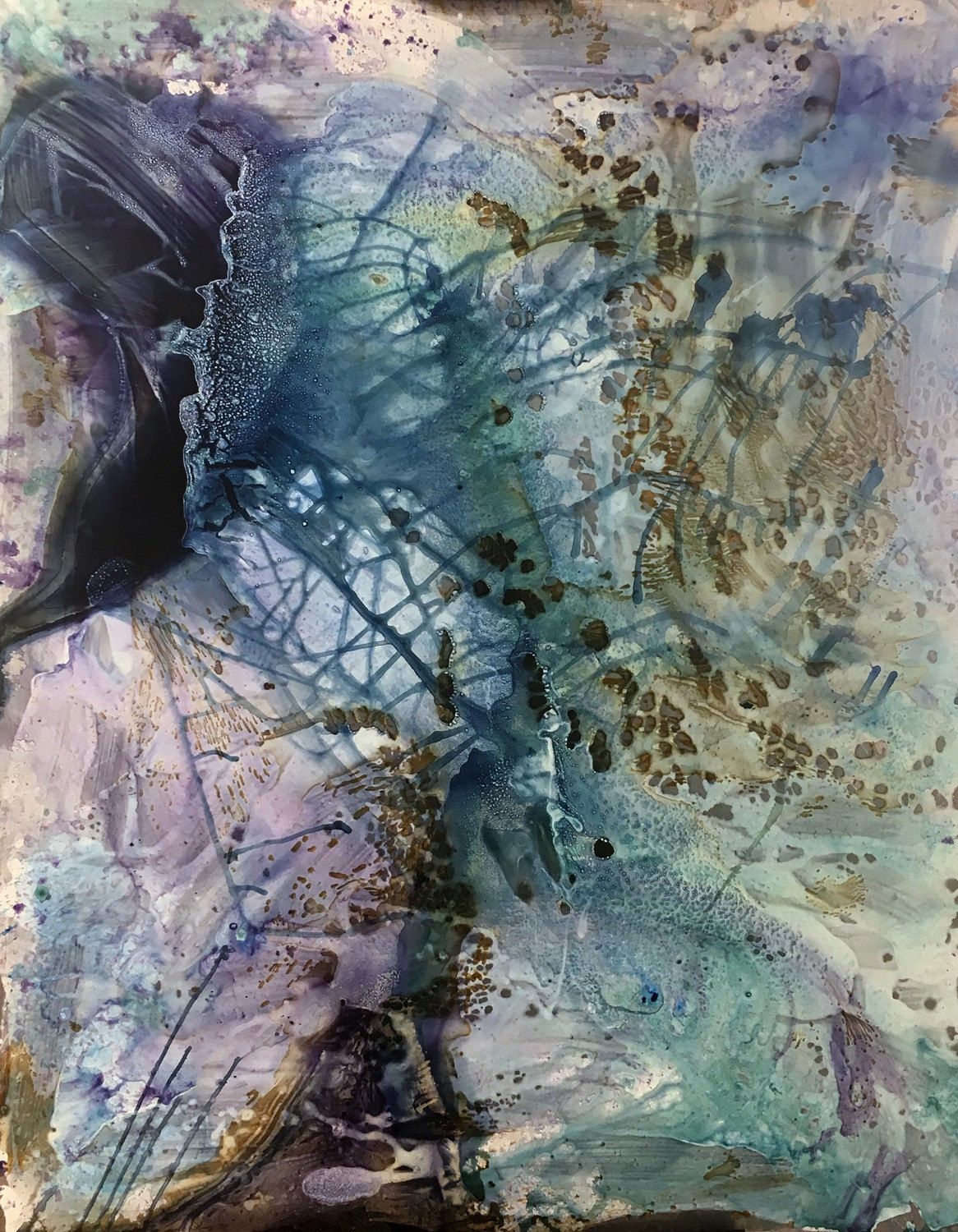
Who are your favorite artists?
Dang, how much space do you have for this article? Here’s a short list: Kehinde Wiley, Faith Ringgold, Willie Bester, Ai Weiwei, Jenny Saville, Walter Mariga, Thomas Mukarobgwa, El Anatsui, Lina Iris Victor, Hsu Tung Han, Agnes Martin, Makoto Fujimura, Cai Guo-Qiang, Käthe Kollwitz, Franz Marc.
How have personal challenges impacted your work?
A number of personal challenges find their way into my work. Most recently, challenges with my health have shifted my focus to my relationship with my body. As a genderqueer person who experiences dysphoria, this has been a frequent topic in my work. Previously, I have focused on the performance and outward appearance of gender, or more abstractly through the destruction of binaries, but now the raw physical mechanics and fragility of life itself are urgent issues for me. Catharsis, acceptance, healing, and finding a less adversarial relationship with existence are my motivations.
Art is a powerful space for self-exploration, and it sounds like it has been a place for you to continuously explore the pivotal experiences, challenges, and joys in your life. What is it like to share those intimate experiences with the public?
It’s not always easy, but I find that it helps me. I spent a lot of my early life believing I was the weirdest lonely thing in the universe, but art gave me a language to reach others — a means of understanding, and it helped me find community. I hope that I can do for others what my artistic role models and mentors did for me.
Can you share your artistic philosophy?
I'm somewhat of an absurdist. As I see it, there's no greater purpose or design to the universe, which is a great source of individual liberation. If there's no reason for things to be the way they are, there are infinite possibilities for change. We can form the world like a lump of clay or globs of paint. Art making is an exercise in world building — of manifesting ideas into reality. Just as our ideas can be valuable, important, earth-changing, funny, and/or pointless, so it is with art. It's a way to make a mark on (and find meaning in) a chaotic, unfeeling universe that is at the same time unspeakably beautiful and utterly magical.
I love how you talk about art as a way not only to leave your mark in this world, but to find meaning in this world. Is viewing the work of others part of this for you? If so, is there any particular work of art or artist who has had a profound impact on your understanding of the world?
So, so many. The first time I went to the Metropolitan Museum of Art in New York was nothing short of a profound religious experience. I’ve crumpled on the floor weeping in front of great works. I also enjoy the way my understanding of different works of art changes over time and informs my view of the world. For example, Michelangelo’s Pieta is a masterpiece, but it meant so much more to me after I became a parent myself. The study of art history is part of a holistic understanding of who we are as a species. Artists have an amazing way of showing us who we are, where we’ve been, and ways to imagine the future.
What would you say to someone just starting out in the arts?
Keep. It. Up. Rejection (from exhibitions, gigs, parents just don’t understand, etc.) is a big part of this world, especially when getting started, and it may be difficult at times to overcome the feelings that come along with it. Keep working and keep trying. You’ll find an audience and your voice will become stronger. Keep going, and learn everything you can!
Ashleigh Rogers is the Creative Director at DrewBoy Creative. She is an artist and art instructor living in Richland, Washington with her husband and three children. Find her on Facebook: Ashleigh Rogers Art or Instagram: ashleigh.a.rogers
Main image: Transition by Rebecca Merkley
